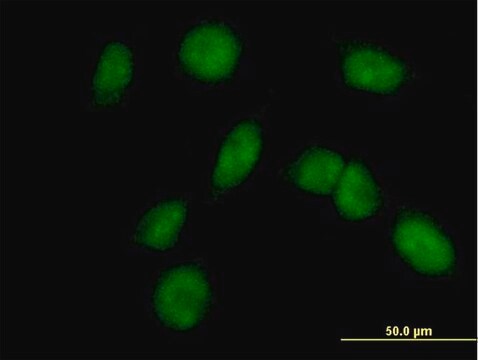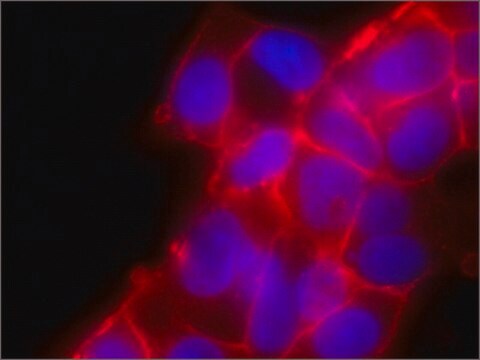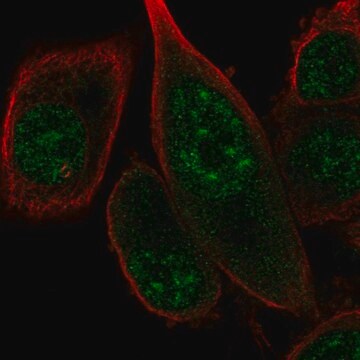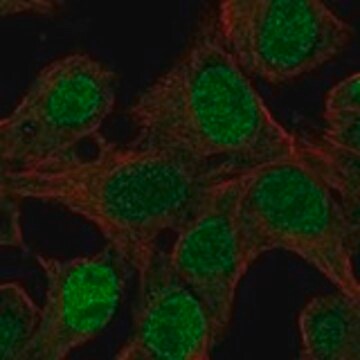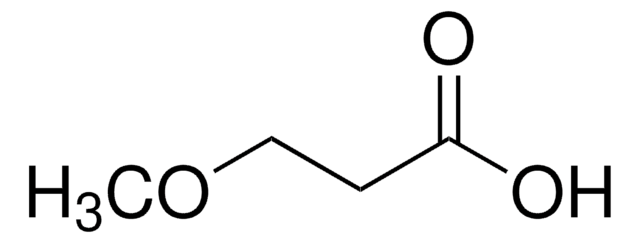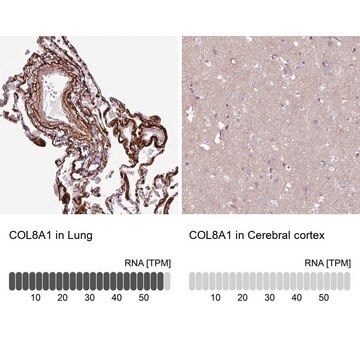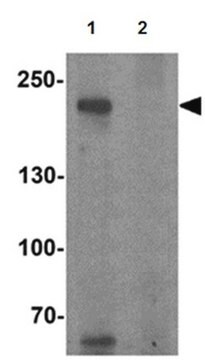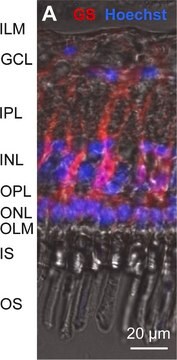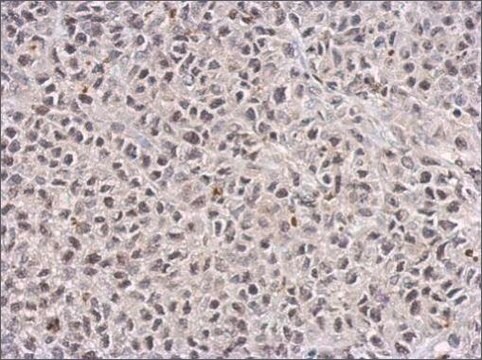MABC545
Anti-FANCM Antibody, clone CV5.1
clone CV5.1, 0.5 mg/mL, from mouse
Sinónimos:
Fanconi anemia group M protein, Protein FACM, ATP-dependent RNA helicase FANCM, Fanconi anemia-associated polypeptide of 250 kDa, FAAP250, Protein Hef ortholog
About This Item
Productos recomendados
origen biológico
mouse
Nivel de calidad
forma del anticuerpo
purified immunoglobulin
tipo de anticuerpo
primary antibodies
clon
CV5.1, monoclonal
reactividad de especies
human
concentración
0.5 mg/mL
técnicas
immunocytochemistry: suitable
isotipo
IgG1κ
Nº de acceso NCBI
Nº de acceso UniProt
Condiciones de envío
wet ice
modificación del objetivo postraduccional
unmodified
Información sobre el gen
human ... FANCM(57697)
Descripción general
Inmunógeno
Aplicación
Epigenetics & Nuclear Function
Apoptosis - Additional
Calidad
Immunohistochemistry Analysis: A 1:100 dilution of this antibody detected FANCM in A431, HeLa, and HepG2 cells.
Dylight® is a registered trademark of Thermo Fisher Scientific.
Descripción de destino
Forma física
Almacenamiento y estabilidad
Información legal
Cláusula de descargo de responsabilidad
¿No encuentra el producto adecuado?
Pruebe nuestro Herramienta de selección de productos.
Código de clase de almacenamiento
12 - Non Combustible Liquids
Clase de riesgo para el agua (WGK)
nwg
Punto de inflamabilidad (°F)
Not applicable
Punto de inflamabilidad (°C)
Not applicable
Certificados de análisis (COA)
Busque Certificados de análisis (COA) introduciendo el número de lote del producto. Los números de lote se encuentran en la etiqueta del producto después de las palabras «Lot» o «Batch»
¿Ya tiene este producto?
Encuentre la documentación para los productos que ha comprado recientemente en la Biblioteca de documentos.
Nuestro equipo de científicos tiene experiencia en todas las áreas de investigación: Ciencias de la vida, Ciencia de los materiales, Síntesis química, Cromatografía, Analítica y muchas otras.
Póngase en contacto con el Servicio técnico